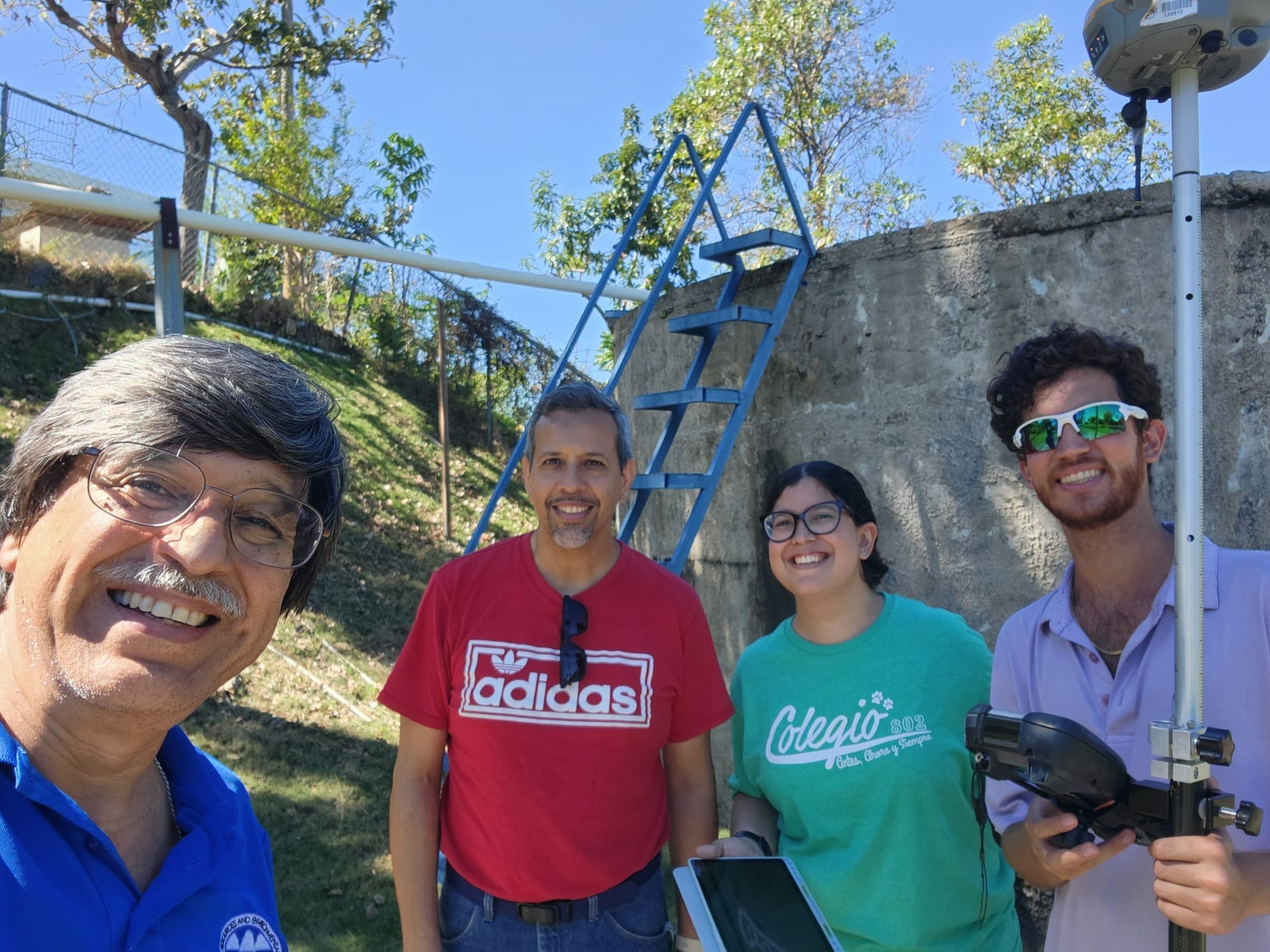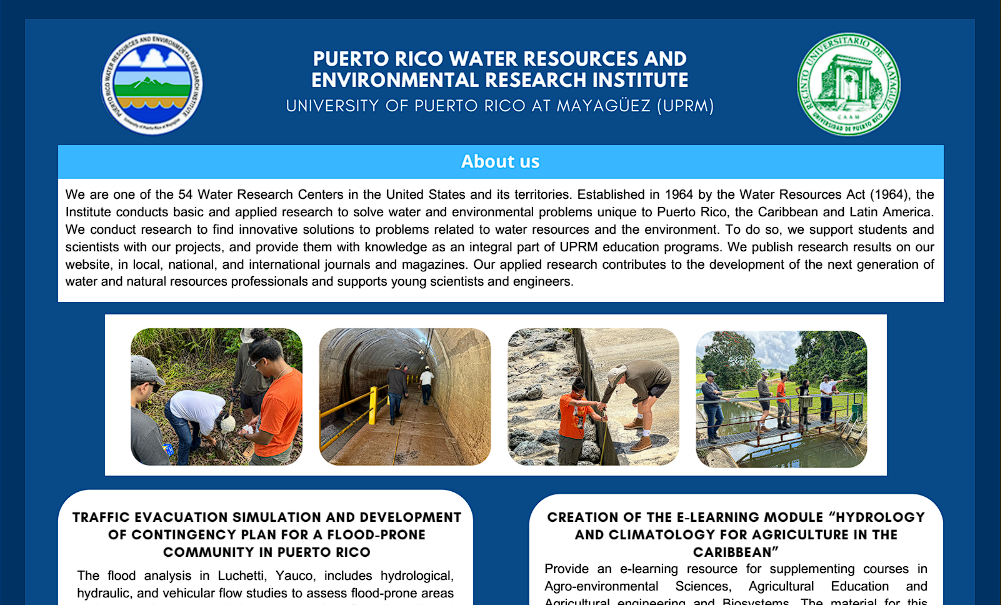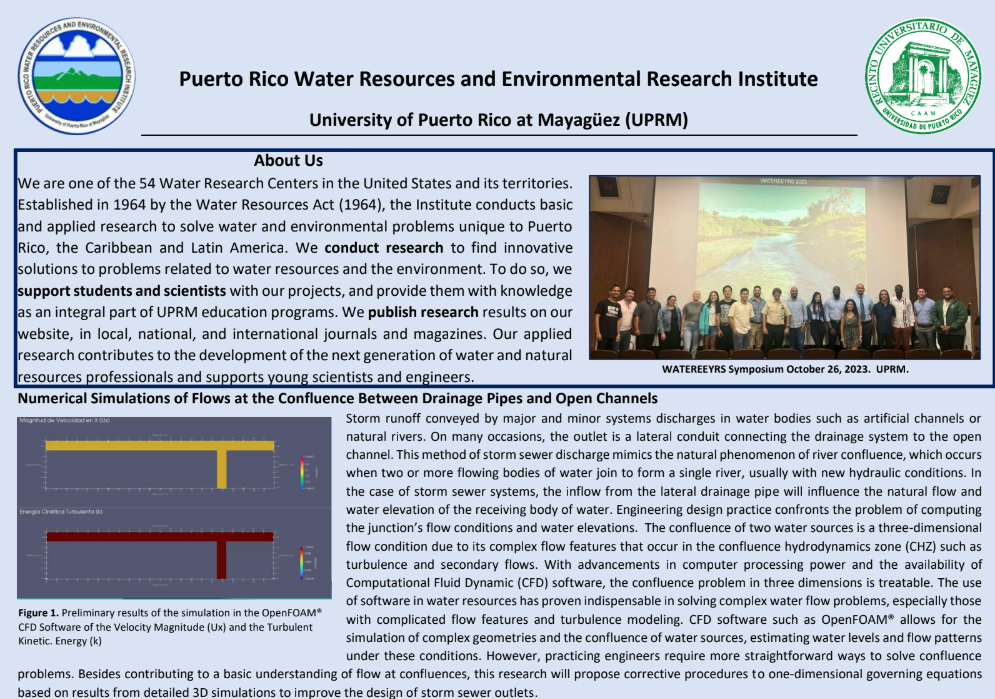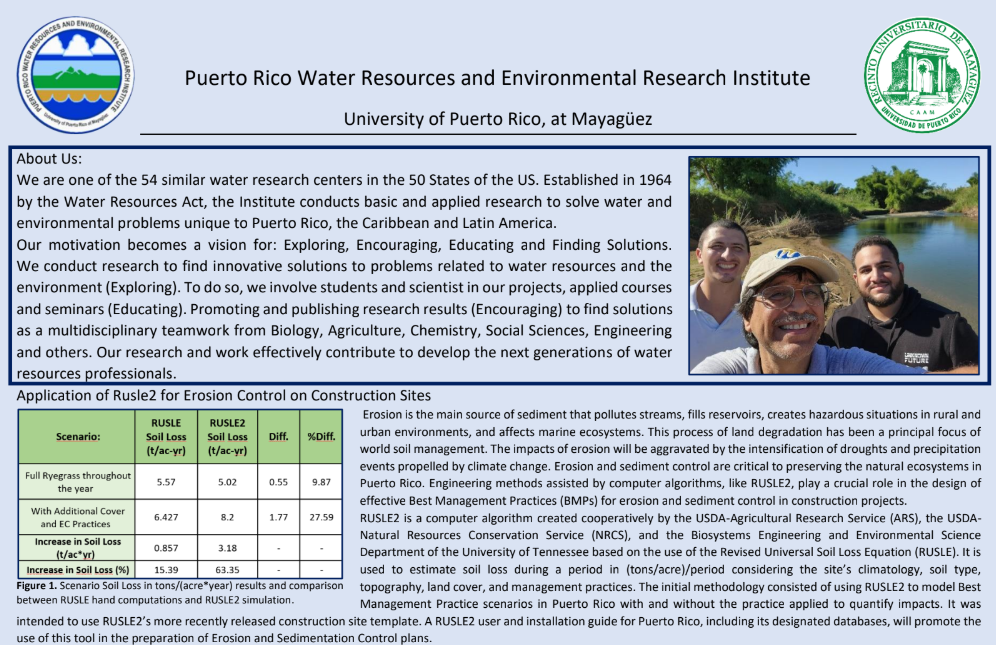Summary: This study examines soil erosion and sediment yield in Haiti’s
Gray River watershed, a highly vulnerable area due to steep
slopes, intense rainfall, and deforestation.
Our Most Recent Factsheet: 2025
Learn about our most recent projects via our factsheets.
Erosion and Sedimentation in the Gray River Basin, Haiti
Methods:
Using HEC-HMS and MUSLE models over 2000–2020, the analysis identified notable spatial differences in the range of 0.5 M to 4.8 M tonnes of sedimentation.
Key Factors:
Key factors were soil erodibility, slope, and vegetation cover.
Results:
The results highlight the need for erosion
control measures like reforestation and sediment-trapping
structures, offering a framework for informed watershed
management in Haiti.
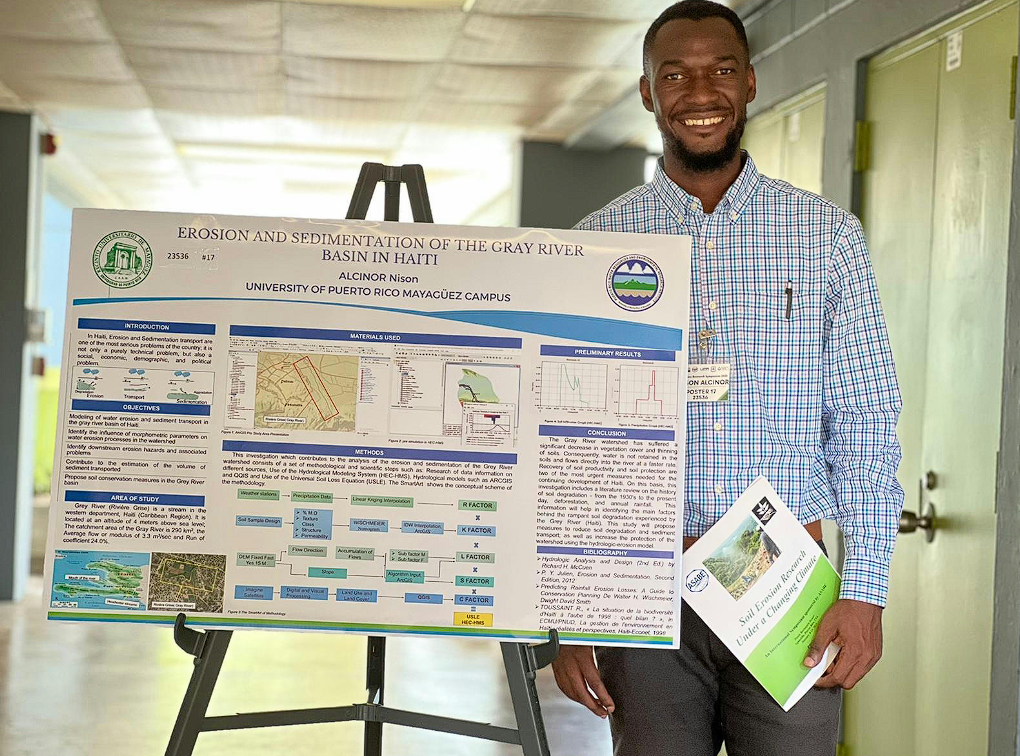
International Research Experiences for Students (IRES) Flood Resilience Program
Summary: Christian Padilla, a PhD student supported by PRWRERI, represented UPRM in the six-week IRES Flood Resilience Program in the Netherlands.
Program Activities:
Students participated in field visits, expert lectures, and collaborative research on flood risk mitigation.
Leadership and Focus:
Led by Texas A&M and partner universities, the program focused on innovative strategies like the “Sand Motor” and multifunctional infrastructure.
Research Findings:
Research in South Holland examined stormwater detention basins in Katwijk, showing their effectiveness in reducing pluvial flooding while enhancing urban space and supporting sustainable coastal development.
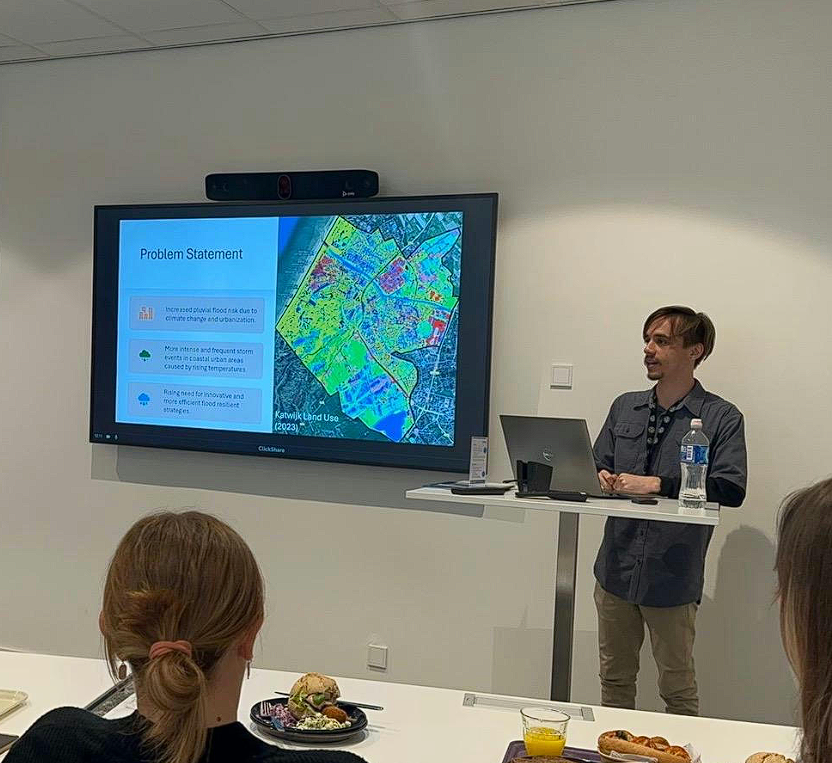
Community-Managed Water System Assessment in Jagüey Chiquito, Aguada, Puerto Rico
Summary: Jagüey Chiquito, a rural community in Aguada, Puerto Rico, independently manages its own water system. To address reliability challenges caused by seasonal climate variations, a rapid assessment was conducted to establish a baseline. The study mapped distribution lines in two regions and surveyed 60 residents to evaluate water reliability, quality, costs, and overall satisfaction.
Context:
Jagüey Chiquito in Aguada, Puerto Rico, is a rural community that operates its own water system independently from the Puerto Rico Aqueduct and Sewer Authority (AAA).
Purpose:
Due to the region’s tropical climate, with wet and dry seasons affecting service reliability, a rapid assessment was carried out to establish a baseline and set priorities.
Approach:
The team mapped the main distribution lines across two zones (Regions A and B) and surveyed 60 residents (30 per region) on aspects such as reliability, water quality, service interruptions, monthly costs, valve usage, and overall satisfaction.
